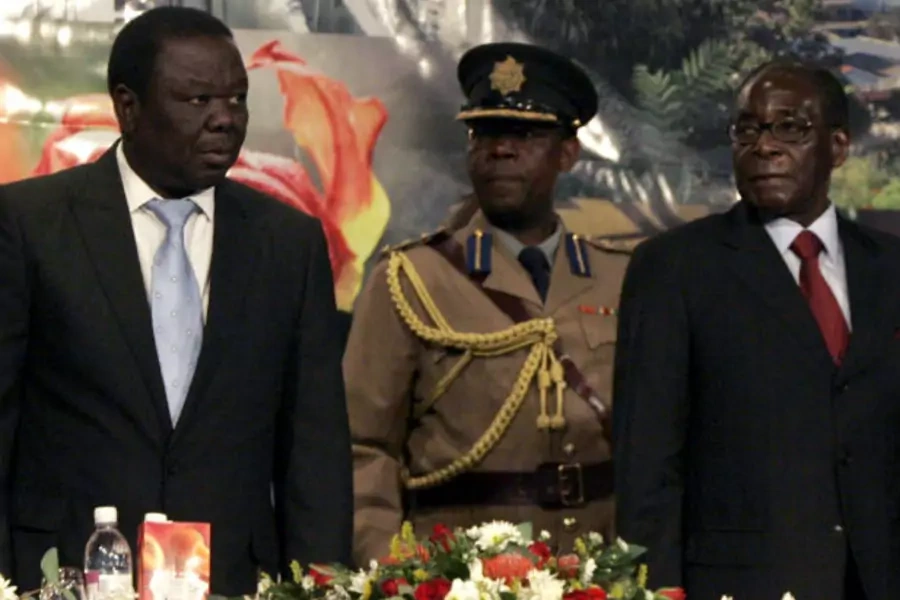More on:
The chief of staff of the Zimbabwean National Army (ZNA,) Maj. Gen. Trust Mugoba, says that the military will not allow a presidential candidate to assume office if he does not share the “ideals” of President Robert Mugabe and his ruling party, ZANU-PF. This week, Mugabe’s chief rival and prime minister, Morgan Tsvangirai, told a civil society organization that the army has lowered its recruitment standards to incorporate Zanu-PF youth militias in anticipation of early elections. It was the military that perpetrated much of the violence against Tsvangirai’s opposition party during the last elections, and there must be concern that party militias incorporated into the military will be used by Zanu-PF for the same purpose in the next elections. Gen. Mugoba’s comments are likely directed at Tsvangirai. A journalist in a leading Kenyan newspaper, Daily Nation, concludes that “fears of military coup mount in Zimbabwe.”
Chatham House has just published Graham Boynton’s analysis titled “Mugabe’s Last Throw of the Dice.” He sees signs that Mugabe and the generals are looking for a snap election in September or October, before a new constitution and other reforms can be implemented, thereby guaranteeing that the president and the generals behind his regime remain in power for another five years. The Southern Africa Development Community (SADC), the relevant regional organization led by South Africa, has been deeply involved in the search for peace in Zimbabwe. To end widespread violence with the prospect of civil war, it brokered the arrangement whereby Morgan Tsvangirai and his party have participated in Mugabe’s government since the last elections. SADC and South Africa’s president, Jacob Zuma, have been pushing to defer the next elections until the necessary reforms are in place. Boynton points out that South Africa has threatened sanctions if Zimbabwe does not follow the agreed sequence of a new constitution to be approved by a referendum, the creation of a new voter roll, and—only upon successful completion of these steps—elections with international monitors.
Hence, Boynton sees Mugabe’s push for early elections as a high-stakes gamble. I am not so sure. Mugabe may still have considerable popular support among Zimbabwe voters, though Zanu-PF intimidation makes it difficult to gauge. Zuma has certainly taken a tougher line on Zimbabwe than did his predecessor, Thabo Mbeki. But for him and other senior leaders in the ANC, Mugabe remains a hero of the region’s struggle against apartheid and white domination. Implementation of sanctions to force out Mugabe would be politically difficult for Zuma. Mugabe knows that and likely considers it when calculating the risk of throwing the dice.
More on:
 Online Store
Online Store
